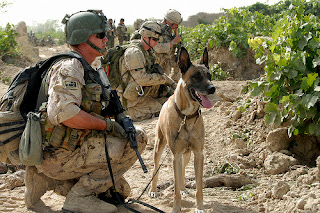April 25th is the day Australians and New Zealanders pay tribute to war dead and those currently at war. ANZAC is the Australian and New Zealand Army Corps.
War is a controversial topic. I know that some readers will have strong views on what ANZAC Day means.
But, on this ANZAC Day I thought it would be nice to recall that whatever your attitude is towards ANZAC Day; whatever your attitude is towards war; whatever your attitude is towards how we should acknowledge the work of fighting men and women - those same attitudes should also apply to animals.
Animals have fought alongside humans for many thousands of years. Veterinary medicine has its roots in horse medicine. Special practitioners were deployed with armies to ensure that horses, who were critical to armies up until at least WWII, arrived healthy, strong and ready to fight.
Many ex-service men talk with great affection about their military horses. And many of those same men will have stories about the sorrow they felt when they had to leave their horse companions behind at the end of a deployment or conflict. Unlike the human soldiers, the horses never returned. Many soldiers chose to shoot their horses out of fear that they would be left to starve, be eaten, or worked slowly to death if left behind.
In modern times dogs are much more likely to go to war along side humans. Known as Military Working Dogs (MWD), our attitudes have become somewhat more enlightened and I am not aware of MWDs being left behind at the end of a conflict.
Some countries have become better at acknowledging the work animals do. In the UK the Animals in War Memorial reminds us of the heavy lifting animals do, especially beasts of burden, and especially in times of war.
The Australian War Memorial has a very modest tribute to animals in war. And more information and images of animals in war on their website.
So whatever you are thinking about this ANZAC Day, take just one moment to think about the many hundreds of thousands of animals who were there (and still are there) too.



No comments:
Post a Comment